Resurrection: Panzer Dragoon Saga 20th Anniversary Arrangement Soundtrack
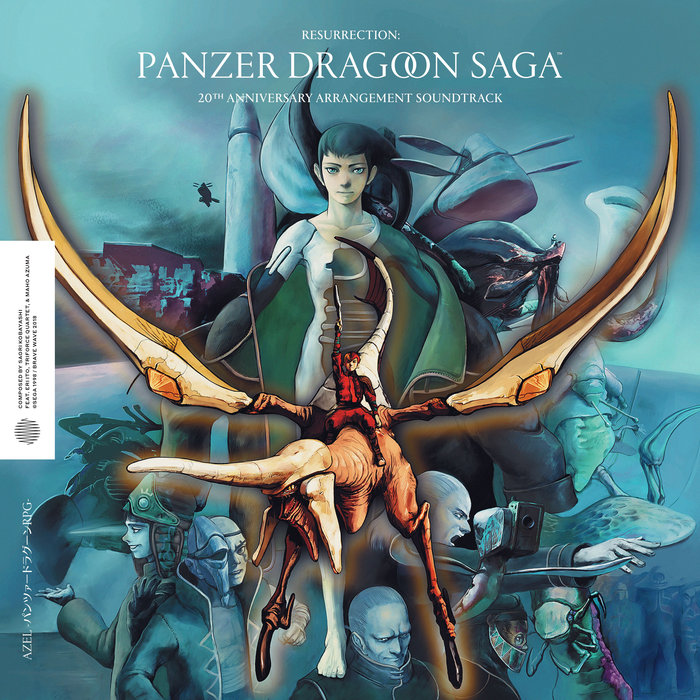 |
Album Title: Resurrection: Panzer Dragoon Saga 20th Anniversary Arrangement Soundtrack |
| Record Label: Brave Wave |
|
| Catalog No.: N/A |
|
| Release Date: January 29, 2018 |
|
| Purchase: Buy at Bravewave |
Overview
Even timeless game soundtracks can occasionally benefit from a facelift. This is certainly true of Panzer Dragoon Saga, the late 90’s Sega Saturn cult classic. Panzer Dragoon Saga’s music largely stands the test of time thanks to its superb compositional integrity. Yet today’s listeners may find themselves longing for a less muted and muffled sound, and even those who hold the original score dear must wonder what Panzer Dragoon Saga would sound like if reimagined in higher definition.
Well, neither party need wonder anymore. For the twentieth anniversary of the original game, Saori Kobayashi has put forth a fresh take on a selection of twenty Panzer Dragoon Saga tracks. Dubbed Resurrection, the new arrangement album is best described as one part remaster and one part small chamber ensemble cover. It’s an imaginative take on a soundtrack that’s so heavily synth-infused, to say the least, but does this new rendition do justice to the original?
Body
For those unfamiliar with the game in question, Panzer Dragoon Saga is a role-playing spinoff of a fantasy rail shooter. Musically, Panzer Dragoon Saga sits somewhere between Hitoshi Sakimoto’s Radiant Silvergun and Toshiya Yamanaka’s Sin & Punishment, meshing orchestral and electronic elements into a unique new age hybrid.
Kobayashi-san’s task in revisiting Panzer Dragoon Saga is not a simple one. Most great game arrangement albums benefit from taking the original compositions and running with them, embellishing the melodies and progressions that fans hold dear to extend the listening experience. Yet Panzer Dragoon Saga is already so musically dense, almost obtuse at times, that significant extensions of these compositions could actually detract from the overall experience. So how does Kobayashi-san approach the work of revitalizing this hidden gem?
For starters, she successfully takes tracks from 1998 and reproduces them in 2018 with a notable jump in audio quality. Take a track like “A Premonition of Battle” for example. Structurally, the track remains unchanged – but the choral swells, brass undercurrents and rolling bongos are each a little crisper in Resurrection than ever before, and the mix comes across much cleaner as a result. Fans of Panzer Dragoon Saga’s iconic sound will be pleased that several tracks on the album play out in a similar fashion, updating the original material rather than overwriting it.
Even while being faithful to the source material, Resurrection is not afraid to add a few fresh twists to liven up classic soundscapes. The aforementioned “A Premonition of Battle” now features some welcomed high-end action courtesy of a tambourine, and the new choice of lead instruments – pan flute and erhu – serve to give the track a more earthly feel. “Mutant Species 1,” on the other hand, has traded in its synthesized flute for a nasal saw lead radiating like an electric beam. “Seekers’ Stronghold” keeps its santur wailing on a pitch-bending ostinato, but the pitch-bends are snappier than they were before. These are minute changes, to be sure, but they reinforce the impression that Kobayashi-san has new tricks up her sleeve and some impressive attention to detail.
Resurrection packs one big surprise for Panzer Dragoon Saga aficionados, however – and that surprise sneaks up on the listener right in the middle of the first track. The new “Ecce valde generous ale” diverges from its predecessor in unique ways right from the get-go, abandoning the original’s percussive backdrop and orchestral strings in favor of showing off Resurrection’s rich new synth work. Then, around the 1’00” mark, comes a sound unlike anything the original game had to offer – a live string quartet. With Resurrection, Saori Kobayashi completely re-imagines some of the rich and layered music of Panzer Dragoon Saga for a sparse handful of acoustic instrumentalists, including the Triforce Quartet, Maho Azuma on flute, and Kobayashi-san herself on piano.
The only thing more surprising than the new direction itself is the fact that it suits Panzer Dragoon Saga so well. The new version of “Wandering,” titled “Nomad,” is a textural treat thanks to some elegant performances by the players mentioned above. The same could be said for “The Village of Zoah,” which begins with a cheery flute solo over a layer of pizzicato, and then transforms into something solemn and reflective. The tempo and key changes in the new version suit the composition well. The piano originally featured in “Tears” is noticeably absent, but the Triforce Quartet more than picks up the slack as they wallow in melancholy and achieve a beautiful blend.
Kobayashi-san and crew reunite once more for Panzer Dragoon Saga’s end credits track, “Sona mi areru ec sancitu.” Whereas the original was a sweeping sendoff, Resurrection’s take on the track is much more subdued and laid-back, anchored by an acoustic bass and rooted in the lower register. Whether or not this tonal shift makes the song more pleasant or not is up to personal preference. That said, the performance itself is solid, and after all this time vocalist Eri Ito hasn’t lost her forceful touch.
Summary
Panzer Dragoon Saga‘s original soundtrack was an achievement in game music unlike anything that came before it. Twenty years later, that soundtrack is still unlike anything that came after its time – and, twenty years later, Saori Kobayashi still has plenty of fresh perspective for the music she composed so long ago. Resurrection succeeds not only in transitioning old tracks into a new age, but also in reworking a selection of pieces in an unexpected style. Whether or not Panzer Dragoon Saga is a part of your gaming past, Resurrection is a gorgeous arrangement album that deserves your attention.
Do you agree with the review and score? Let us know in the comments below!
5
Posted on February 27, 2018 by Reilly Farrell. Last modified on February 27, 2018.

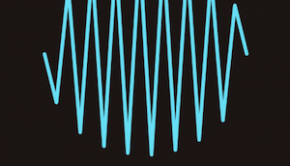
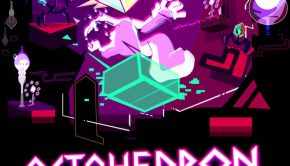
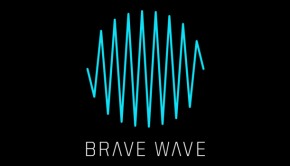
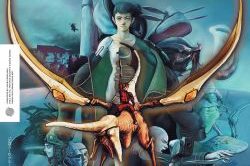










Wonderful to read while listening to the tracks! I never played the original, but you don’t need to in order to appreciate these pieces. Absolutely stunning.